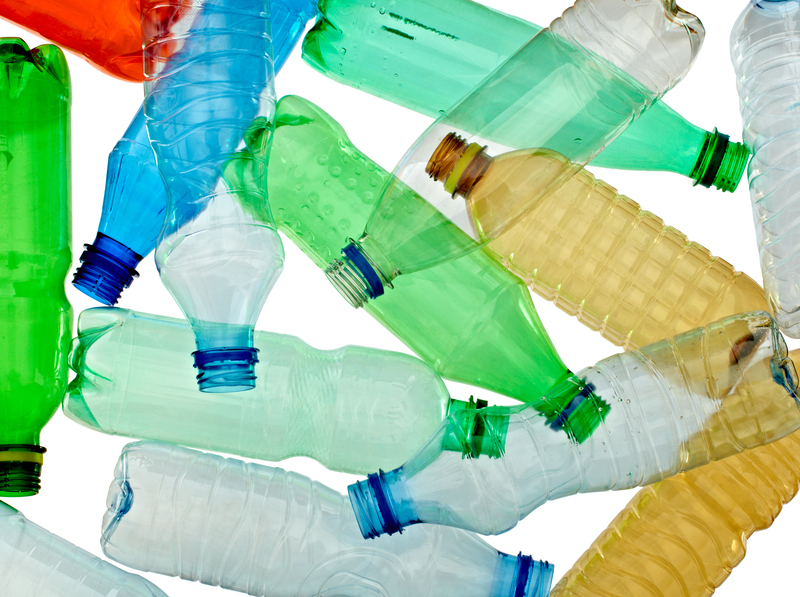Effective Waste Disposal in Merton: A Comprehensive Guide

Understanding Waste Disposal in Merton
Waste disposal is a crucial aspect of maintaining a clean and healthy environment. In Merton, residents and businesses alike are responsible for managing their waste effectively to ensure sustainability and compliance with local regulations.
The process involves the collection, transportation, and disposal or recycling of waste materials. Proper waste management helps reduce pollution, conserve resources, and protect public health.
Merton offers various waste disposal services tailored to meet the needs of its diverse community. From residential pickups to commercial waste solutions, the borough is committed to providing efficient and environmentally friendly options.

Types of Waste Managed in Merton
In Merton, waste is categorized to streamline the disposal process. The main types include:
- Household Waste: Everyday items like food scraps, packaging, and other non-recyclable materials.
- Recyclables: Materials such as paper, cardboard, glass, and certain plastics that can be processed and reused.
- Hazardous Waste: Items like batteries, paint, and chemicals that require special handling to prevent environmental contamination.
- Bulky Waste: Large items like furniture and appliances that need special collection services.
- Green Waste: Organic materials including garden clippings and yard debris that can be composted.
Understanding these categories helps residents sort their waste correctly, facilitating efficient recycling and disposal processes.

Waste Disposal Services Available
Merton provides a range of waste disposal services to cater to different needs:
Residential Waste Collection
Regular household waste collection ensures that everyday trash is removed promptly. Residents are encouraged to separate recyclables from general waste to promote recycling efforts.
Commercial Waste Services
Businesses in Merton can access specialized waste disposal services, including scheduled pickups and tailored recycling programs, to manage their waste responsibly.
Recycling Programs
Merton emphasizes recycling to reduce landfill usage. Various programs support the recycling of paper, glass, metals, and plastics, making it easier for residents to participate in sustainable practices.

How to Dispose of Waste Responsibly
Responsible waste disposal involves several key practices:
- Sort Your Waste: Separate recyclables, hazardous materials, and general waste to ensure each type is handled appropriately.
- Reduce and Reuse: Minimize waste by choosing reusable products and reducing unnecessary consumption.
- Compost Organic Waste: Composting garden waste and food scraps can reduce landfill burden and create useful soil for gardening.
- Proper Disposal of Hazardous Materials: Use designated drop-off points for hazardous waste to prevent environmental contamination.
- Maintain Clean Collection Areas: Keep bins and collection points clean to prevent pest infestations and odors.
By adopting these practices, residents can contribute to a healthier environment and more efficient waste management system.

Challenges and Solutions in Waste Disposal
Managing waste effectively in Merton comes with its set of challenges:
Limited Landfill Space
As landfill space becomes scarce, it's essential to prioritize recycling and waste reduction to extend the life of existing facilities.
Contamination in Recycling Bins
Incorrectly sorted waste can contaminate recyclables, making processing more difficult and less efficient. Education and clear guidelines help mitigate this issue.
Rising Waste Generation
With increasing population and consumption, waste generation is on the rise. Encouraging sustainable practices and efficient waste management systems are key to addressing this challenge.
Technological Limitations
Implementing advanced waste processing technologies can be costly. Investing in innovative solutions and seeking funding opportunities can help overcome these limitations.
By identifying and addressing these challenges, Merton can enhance its waste disposal systems and promote a more sustainable future.

Local Regulations and Policies
Merton adheres to both local and national regulations concerning waste management. These policies are designed to ensure that waste disposal practices are environmentally responsible and socially equitable.
Waste Framework Directive
This directive sets the basic concepts and definitions related to waste management, including definitions of waste, recycling, and recovery.
Merton Waste Strategy
The local waste strategy outlines the borough's approach to waste reduction, recycling, and disposal. It includes targets for increasing recycling rates and reducing landfill dependency.
Producer Responsibility
Businesses are encouraged to take responsibility for the waste they generate, promoting sustainable production and consumption patterns.
Compliance with these regulations ensures that Merton maintains high standards of waste management and contributes to broader environmental goals.

Community Involvement and Initiatives
Community involvement is vital for effective waste management. Merton fosters engagement through various initiatives:
Recycling Drives
Periodic recycling drives encourage residents to contribute to the borough's recycling efforts by collecting specific materials.
Educational Programs
Workshops and seminars educate the community about sustainable waste practices and the importance of reducing waste.
Volunteer Clean-Up Events
Volunteer events help maintain public spaces, promoting a sense of ownership and responsibility among residents.
Incentive Programs
Incentives for recycling and waste reduction motivate individuals to participate actively in sustainable practices.
These initiatives not only improve waste management but also strengthen community bonds and promote environmental stewardship.

Technological Advancements in Waste Disposal
Technology plays a significant role in modern waste management. Merton leverages various technological solutions to enhance efficiency:
Smart Bins
Equipped with sensors, smart bins monitor waste levels, optimizing collection schedules and reducing operational costs.
Recycling Robots
Automated sorting systems use robotics and AI to separate recyclables more accurately and quickly than manual methods.
Waste-to-Energy Plants
These facilities convert non-recyclable waste into energy, providing a sustainable alternative to landfill disposal.
Online Waste Tracking Systems
Digital platforms allow for real-time tracking of waste collection and processing, improving transparency and accountability.
Adopting these technologies helps Merton enhance its waste disposal capabilities and move towards a more sustainable future.

Impact of Waste Disposal on the Environment
Effective waste disposal has a profound impact on the environment:
Reduction of Pollutants
Proper waste management minimizes the release of harmful pollutants into the air, water, and soil.
Conservation of Resources
Recycling conserves natural resources by reusing materials, reducing the need for raw material extraction.
Climate Change Mitigation
Reducing landfill waste lowers methane emissions, a potent greenhouse gas contributing to climate change.
Biodiversity Protection
Proper waste disposal prevents habitat destruction and protects wildlife from the dangers of pollution.
These environmental benefits highlight the importance of effective waste disposal systems in fostering a sustainable ecosystem.

Future of Waste Disposal in Merton
Merton is committed to advancing its waste disposal practices to meet future challenges:
Enhanced Recycling Programs
Plans to expand recycling services and introduce new materials for recycling aim to increase overall recycling rates.
Zero Waste Goals
The borough is striving towards zero waste by implementing strategies focused on waste reduction, reuse, and recycling.
Investment in Green Infrastructure
Investing in sustainable infrastructure supports long-term waste management solutions and environmental protection.
Community Education and Engagement
Ongoing efforts to educate and engage the community are essential for fostering a culture of sustainability.
With these initiatives, Merton is poised to lead the way in innovative and responsible waste disposal practices.
Nearby Areas Benefiting from Merton's Waste Disposal Services
- South Wimbledon: Just north of Merton, South Wimbledon benefits from the same efficient waste collection services.
- Colliers Wood: Located to the west, Colliers Wood enjoys comprehensive recycling programs similar to Merton.
- West Barnes Southwest of Merton town center, West Barnes has access to advanced waste disposal facilities.
- Richmond Park: East of Merton, Richmond Park residents participate in the borough's green waste initiatives.
- Motspur Park: North of Merton, Motspur Park benefits from specialized hazardous waste collection services.
- Tooting: Adjacent to Merton, Tooting residents collaborate on community clean-up events.
- Raynes Park: Northwest of Merton, Raynes Park has access to smart bin technology introduced by Merton.
- Kew: West of Merton, Kew benefits from waste-to-energy projects supported by Merton authorities.
- Dulwich: Northeast of Merton, Dulwich participates in the borough's zero waste initiatives.
- Putney: South of Merton, Putney residents are integral to recycling drive efforts organized by Merton.
- Clapham: East of Merton, Clapham tenants benefit from the efficient waste disposal systems implemented by Merton.
- Earlsfield: Northwest of Merton, Earlsfield enjoys the educational programs on waste reduction provided by Merton.
- Lambeth: North of Merton, Lambeth collaborates with Merton on regional waste management strategies.
These nearby areas leverage Merton's waste disposal infrastructure and initiatives, contributing to a broader effort towards sustainable waste management in the region.
Frequently Asked Questions
1. How often is waste collected in Merton?
Waste collection frequency in Merton varies based on the type of waste and the specific service. Typically, household waste is collected weekly, while recyclables may be collected bi-weekly.
2. What items are considered hazardous waste in Merton?
Hazardous waste includes batteries, paints, chemicals, electronics, and other materials that can be harmful to the environment and require special handling.
3. How can I participate in Merton's recycling programs?
Residents can participate by properly sorting recyclables, using designated recycling bins, and adhering to the guidelines provided by the borough's waste management services.
4. What should I do with bulky waste items in Merton?
Bulky waste items can be scheduled for special collection services provided by Merton. Residents should contact the local waste disposal authority to arrange a pickup.
5. Are there any incentives for reducing waste in Merton?
Yes, Merton offers various incentives such as discounts on waste disposal fees for residents who actively participate in recycling and waste reduction programs.